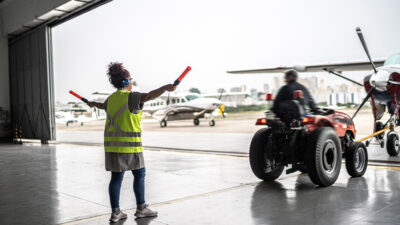Safety Culture & Promotion - SM4 Safety Articles & Resources

FAR Part 91 Safety – What You Can Do Right Now
In a previous article (“FAR Part 91 Safety—Is It Time for a Wake-Up Call?”), we provided insights from 19 current directors of aviation about the state of safety in the…

More Than a Box Tick: Achieving Operational Flexibility With an FRMS
Moms know best. This adage holds true in many domains of family life—allergies, grades, crushes. When thinking about aviation safety, though, perhaps the best illustration drawn from mom’s expertise is…

The Effects of a Learning Mindset on Safety Culture
As aviation departments strive to enhance their safety performance, a critical yet often overlooked element is the need to foster a learning-culture mindset. This mindset shift can unlock invaluable opportunities for continuous improvement, employee engagement and creating a resilient safety environment. From a behavioral management perspective, as your company’s learning culture goes, so goes the ongoing success of your SMS.

The Petri Dish of Safety Culture
If we look through a microscope at the elements of “safety,” we see things that are often hidden. We secretly know that the rules don’t matter as much as the attitude of the company and the person using them.

The Art of Influence Has Never Been More Important—or More Overlooked
As our industry continues to grind through the growth pains of a generational handoff, the art of peer-to-peer influence has never been more critical. While executive leadership is important, attitudes, values and culture are shaped informally by experienced line employees and first-line supervisors operating far, far away from the C-suites.

Safety in Numbers: Trends in Aviation Accidents and Incidents
Every accident is preventable; the problem is that we don’t know how to prevent it until after the accident happens. However, what we can do as an industry is honor the anguish of each event by sharing the information, the mistakes and the outcomes to improve safety for everyone.

The Flip Side of Psychological Safety
From a human factors perspective, we might be evolving towards a partial power situation. In the evolving landscape of workplace dynamics in pursuit of improved safety, the concept of psychological safety has gained significant traction. It’s the bedrock of an organizational culture that fosters open communication, innovation, and growth.

A Safety Manager’s Guide to Impactful Leadership
In the world of safety management, “power” might not be the first word that comes to mind. However, we’re going to explore an intriguing concept—the power that safety managers possess and how we can harness it to create a significant impact within our organizations.

Sleep Duration Is a Key Factor in Predicting On-Duty Alertness
After a poor night of sleep, it is common to feel tired, sluggish and even irritable. More important for air operators, poor sleep is also associated with increased fatigue—which can directly impact employee performance and put lives at risk.
